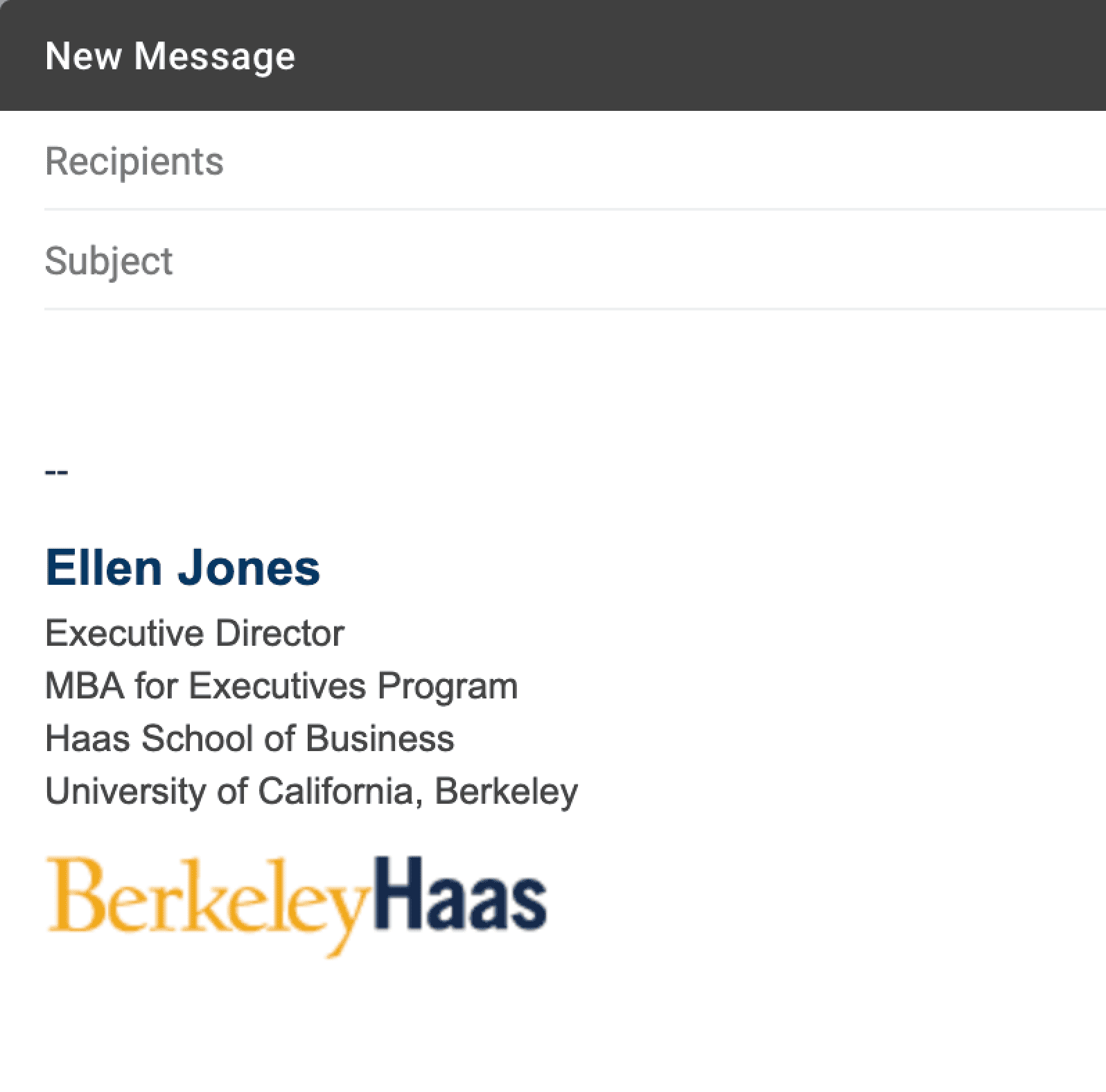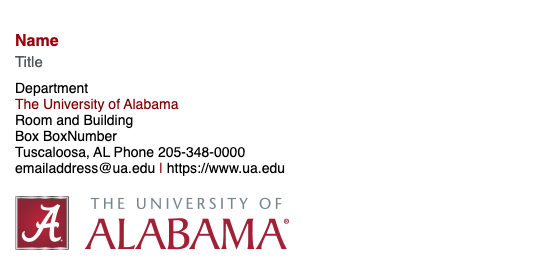

Carter.” Diving right in with their name can seem rude and informal.Īnd use your best judgment when it comes to calling them by their first name. (You’ll need this for your post-college days eventually anyway.) Alternatively, you can use the email address provided by your school.

#Email signature examples for college student professional
It’s difficult to make a great first impression if your email address reads or creating a free email account with a more professional name. Use your school email account or make sure your personal account is professional sounding. 8 AM-Frog Lab QuestionĮxample: Mady Smith (James Ferris’s intern) Resume Inquiry 3. If you’re reaching out to a contact who doesn’t know you very well or to a professor of a large class who isn’t likely to recognize your name right off the bat, you can also include information that introduces who you are.Įxample: Ian Boyle-BIO 201 Tues. Instead, try for something more specific like "Following up on last Wednesday Afternoon’s Introduction Call".Īlso, always avoid emojis and inappropriate terms. Always avoid vague subjects like "Hey You!" or "FYI". The person you’re reaching out to should look at the email subject line in their inbox and have a general idea of what the message is about. Provide specific information in the subject line. If you have a quick question or a message that can be briefly conveyed (we’re talking no more than a paragraph or two), email is the way to go. Alternatively, you can reach out by email to schedule a call for a longer conversation. If you can’t reach out in person, but you have something that’s urgent, personal, or warrants a longer discussion, email is still not the best option. Not only will you get an immediate response, but you’ll have a better chance of being remembered by the person you reached out to. If you have a simple, quick question that you can ask in person, do that instead. The first question you should always ask yourself: does this message need to be communicated through an email?. Know when it’s appropriate to send an email in the first place. Here are essential tips to help you practice proper email etiquette.ġ. Always avoid vague subjects like “Hey there!” or “FYI.” Be sure to include information that will get your email noticed and clearly defines the type of message included. Proper email etiquette starts with the subject line. Have a better chance of getting the type of response you wantĮmails are a communication skill that will benefit you while still in school and can make or break your professional career after graduation.

There are a certain set of email etiquette practices you need to follow to: Sending any kind of message to a professor, hiring manager, a recruiter, or any type of professional contact for that matter is different than the messages you send to friends and family. Writing a professional email may not sound like a big deal, but it’s actually a skill in itself. Blog 15 Essential Email Etiquette Tips for Every College Student Casey Brown 6 mins


 0 kommentar(er)
0 kommentar(er)
